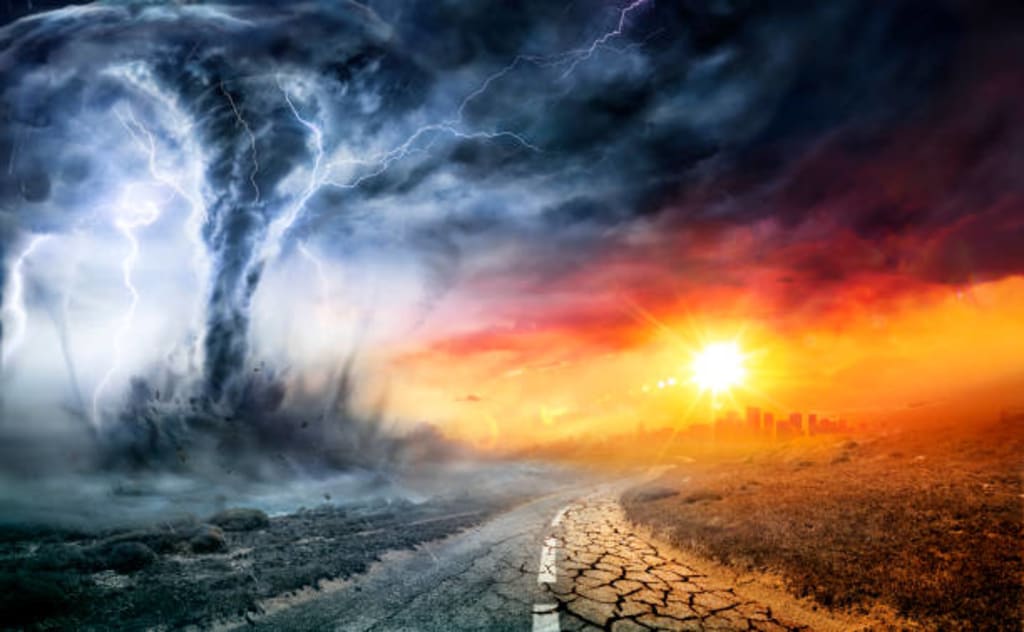How is global warming affecting our planet?
Effects of global warming

Global warming, also known as climate change, refers to the long-term increase in Earth's average surface temperature due to human activities, primarily the burning of fossil fuels and deforestation. This phenomenon has far-reaching consequences for our planet, affecting various aspects of the environment, ecosystems, and human societies. In this research, we will explore the extensive impacts of global warming on our planet.
1. Rising temperatures: One of the most evident effects of global warming is the rise in average global temperatures. Over the past century, Earth's surface temperature has increased by approximately 1 degree Celsius (1.8 degrees Fahrenheit). This may seem like a small change, but it has significant implications for the planet. Rising temperatures lead to more frequent and intense heatwaves, which can have detrimental effects on human health, agriculture, and ecosystems.
2. Melting ice and rising sea levels: Global warming is causing the accelerated melting of glaciers and ice caps in polar regions such as Greenland and Antarctica. As a result, sea levels are rising at an alarming rate. The Intergovernmental Panel on Climate Change (IPCC) estimates that sea levels could rise by up to one meter (3.3 feet) by the end of this century if emissions continue unabated. This poses a severe threat to coastal communities, low-lying islands, and vulnerable ecosystems.
3. Extreme weather events: Global warming is intensifying extreme weather events such as hurricanes, droughts, floods, and wildfires. Warmer temperatures provide more energy to fuel these events, making them more frequent and severe. For example, warmer ocean waters contribute to the formation of stronger hurricanes, while higher temperatures increase the likelihood of prolonged droughts and heatwaves. These extreme weather events have devastating impacts on infrastructure, agriculture, water resources, and human lives.
4. Disruption of ecosystems: Global warming disrupts ecosystems by altering temperature regimes and precipitation patterns. Many species are struggling to adapt to these rapid changes, leading to shifts in their geographical ranges, changes in migration patterns, and increased risk of extinction. Coral reefs, for instance, are highly vulnerable to rising ocean temperatures, causing widespread bleaching events and the loss of vital habitats for numerous marine species. The disruption of ecosystems has cascading effects on biodiversity, food webs, and ecosystem services.
5. Ocean acidification: As carbon dioxide (CO2) emissions increase, a significant portion of this greenhouse gas is absorbed by the oceans. This process leads to ocean acidification, whereby seawater becomes more acidic. Acidic waters pose a threat to marine life, particularly organisms with calcium carbonate shells or skeletons such as corals, shellfish, and plankton. Ocean acidification can disrupt the entire marine food chain and have severe consequences for fisheries and coastal economies.
6. Changes in precipitation patterns: Global warming affects precipitation patterns, leading to changes in rainfall distribution and intensity. Some regions may experience more frequent and intense rainfall events, increasing the risk of flooding and landslides. Conversely, other areas may face prolonged droughts and water scarcity. These changes in precipitation patterns have profound implications for agriculture, water resources management, and food security.
7. Health impacts: Global warming has direct and indirect impacts on human health. Heatwaves can cause heatstroke, dehydration, and cardiovascular problems, particularly among vulnerable populations such as the elderly and children. Changes in temperature and precipitation patterns also affect the distribution of disease-carrying vectors like mosquitoes and ticks, increasing the risk of vector-borne diseases such as malaria, dengue fever, and Lyme disease. Additionally, air pollution associated with fossil fuel combustion contributes to respiratory diseases like asthma.
8. Economic consequences: The economic consequences of global warming are substantial. Extreme weather events result in billions of dollars in damages to infrastructure, agriculture, and property each year. Rising sea levels and increased coastal erosion threaten coastal cities and tourism-dependent economies. Changes in precipitation patterns can disrupt agricultural productivity, leading to food shortages and price volatility. Moreover, the transition to a low-carbon economy requires significant investments in renewable energy infrastructure and adaptation measures.
In conclusion, global warming is having profound and wide-ranging effects on our planet. Rising temperatures, melting ice, extreme weather events, ecosystem disruption, ocean acidification, changes in precipitation patterns, health impacts, and economic consequences are just some of the ways in which global warming is affecting Earth. Urgent action is needed to mitigate greenhouse gas emissions, adapt to the changes already underway, and protect vulnerable communities and ecosystems from the impacts of climate change.
Top 3 Authoritative Reference Publications or Domain Names:
1. Intergovernmental Panel on Climate Change (IPCC) - The IPCC is a scientific body established by the United Nations to provide policymakers with objective information about climate change.
2. National Aeronautics and Space Administration (NASA) - NASA conducts extensive research on climate change and provides valuable data on Earth's climate system.
3. National Oceanic and Atmospheric Administration (NOAA) - NOAA is a U.S. government agency that monitors and studies the Earth's oceans, atmosphere, and climate. They provide authoritative information on climate change impacts.
About the Creator
Prince Ansu
Its all about providing our readers with the best informative and educative contents to further enhance their knowlage over things happening around the globe. Our main goal is to contribte to our readers personal growth and developments.
Reader insights
Outstanding
Excellent work. Looking forward to reading more!
Top insights
Excellent storytelling
Original narrative & well developed characters
Expert insights and opinions
Arguments were carefully researched and presented
Eye opening
Niche topic & fresh perspectives
Heartfelt and relatable
The story invoked strong personal emotions






Comments
There are no comments for this story
Be the first to respond and start the conversation.